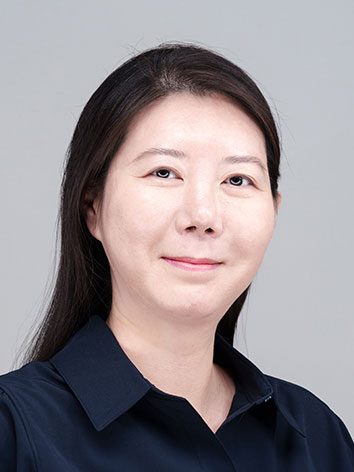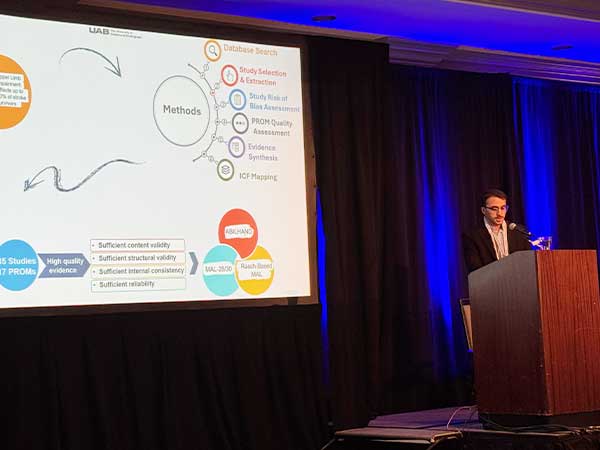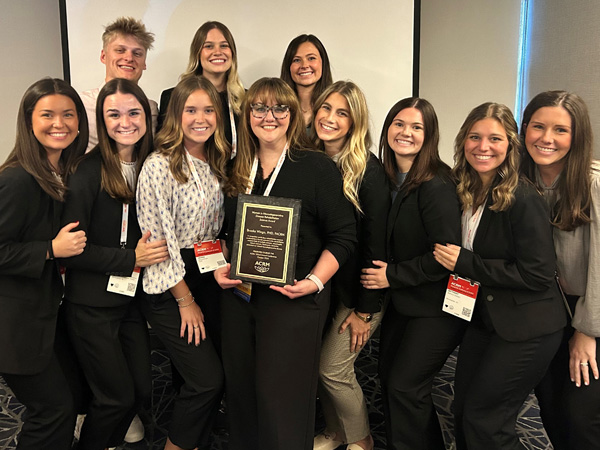Dr. Yumi Kim, postdoc in the Department of Physical Medicine Rehabilitation and SHP Research Collaborative, recently received a psychosocial research postdoctoral training fellowship grant from the Craig H. Neilsen Foundation to study participant engagement in spinal cord injury research.
 The grant calls for using the application of discrete choice experiment, DCE, in which the target population chooses between two differing products based on personal preference – in her study, exercise interventions.
The grant calls for using the application of discrete choice experiment, DCE, in which the target population chooses between two differing products based on personal preference – in her study, exercise interventions.
DCE originated from the business field through conducting market-based research to discern which products are more appealing to consumers. DCE is now being used in the healthcare field with the mindset that the healthcare system is a product, or service, being sold, or delivered, to consumers, or patients. It’s already been used by researchers studying Parkinson’s disease, stroke recovery and pain management.
“That’s the unique training I’m trying to learn because they have specific steps on how to conduct it,” Kim said. “I know how to do qualitative and quantitative research in general, and I need to apply those skills to be perfectly fitted to the DCE setting.”
The hope is to leverage the postdoc training to become a more advanced researcher and use the findings from DCE to implement the preferred exercise intervention.
“Many times, we design something based on what we know, try the intervention, get participant feedback once they’re done and try to improve the intervention, but DCE allows us to take that step forward, so we ask first and get feedback throughout,” Kim said. “It’s all the same chain, but what we do first is a little unique.”
The goal of Kim’s proposed study is to look at research participants’ needs when enrolling in clinical trials that offer exercise interventions for people with spinal cord injury. Kim hopes to develop intervention that is tailored to the population’s preferences, increasing enrollment and retention of the participants.
“Hopefully, the intervention that we design with DCE in this Neilsen study will be engaging and effective for many people with SCI and have the best outcomes, which is the ultimate goal,” she said. “Then, once the program is out there, people will be signing up quickly instead of us chasing them around and begging to participate.”
Kim will conduct qualitative analysis through interviewing and quantitative analysis through surveys.
The two-year, $200,000 grant will cover 100% of Kim’s salary and will provide monetary compensation to participants in the study.
Kim is eager to get the study rolled out, and she expressed immense gratitude to her mentors in CEDHARS leadership for helping secure the grant.
“The reviewer's comments repeatedly noted the exceptional mentors, training experiences, opportunities, environment and the strong letters of support from all mentors expressing my potential to be an independent and successful researcher,” she said.

